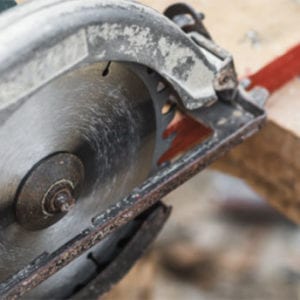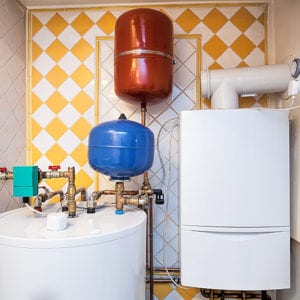What Happens to Your Furnace When Your Home is Under Construction
Construction is, by nature, a messy process. You can’t build a house without making some dust. Not to mention sawdust, drywall dust, paint fumes, glue vapour…and all sorts of airborne particles you wouldn’t ever want to breathe in
What you might not know that it isn’t good for your HVAC equipment, either.
We hope this article helps shine a light on an issue that every Ontario homeowner should know about.
What Happens to Your Furnace When Your Home’s Under Construction
Heating and cooling technicians warn you not to run your furnace or air conditioner while you’re renovating your home. Construction dust can enter the system through the return air vents and accumulate inside, clogging your equipment and causing significant strain.
The worst culprit of all is drywall dust. If drywall dust gets in your furnace, it can quickly clog the secondary coil, infiltrate the motor and eat away at the bearings inside of the blower fan assembly.
Not to mention the state of your air ducting once it’s been blasted with drywall particles.
Shockingly, we’ve learned that some home builders in Ontario will actually run the home’s furnace while they’re still working on the house…knowing full well that drywall dust could infiltrate the entire HVAC system.
What’s worse, this action will likely void the furnace’s warranty, and future homeowners might have no knowledge of this damage until they’re on the hook for repairs.
Why Your Home’s New Furnace Might Be ‘Used’ After All
You’d expect a brand-new home to come with a brand-new, unused furnace. So, it’s no surprise that homeowners feel cheated when they discover that the builders used it first.
According to one homeowner interviewed for a CBC investigation, “I opened up the front of the furnace and it just looked like a bag of flour exploded in there. The furnace filter was caked with drywall dust and debris.”
You might wonder why home builders are allowed to run a home’s residential furnace during construction. The truth is, they’re not, at least not before the home is still in the drywall phase.
Back in 2016, furnace manufacturers took a stand against this very issue. Working with the Heating, Refrigeration and Air Conditioning Institute (HRAI), the industry adopted the position that gas furnaces are not permitted to be used in Canada for the heating of buildings or structures under construction.
The Technical Standards and Safety Institute (TSSA) followed suit, issuing Advisory FS-232-17, which states that:
For a furnace to be used during the finishing stages of construction all of the following requirements must be met:
- The furnace’s return air and supply air openings must be covered to minimize infiltration of dust prior to and during dust-generating construction activities (e.g. drywall installation, woodworking).
- All interior drywall must be installed, taped, sanded and first coat of primer applied.
- The building must be cleaned of all debris and drywall dust.
- A new furnace filter must be installed, rated at MERV 11 or finer. The filter itself must be labelled accordingly by the manufacturer for easy identification.
- The furnace must be commissioned by a TSSA-registered heating contractor in accordance with the manufacturer’s certified installation instructions and to match values shown on the furnace’s rating plate.
- Arrangements must be made with the fuel distributor to inspect the furnace subsequent to it being used for Finishing Heat (can be done in conjunction with inspection of all other gas appliances prior to final occupancy)
These new rules draw a clear line between ‘Construction Heat’ and ‘Finishing Heat,’ which essentially bans builders from running the furnace while the house is still full of drywall dust.
However, it’s clear from CBC’s investigation that some builders are still skirting the rules.
What You Can Do
So, you suspect that your furnace was operating during construction (either during the home build or a renovation.) What should you do?
- First, don’t panic. If you’re comfortable looking into your furnace, you can take off the front panel and do a quick visual inspection. Drywall isn’t subtle, so you might see evidence of damage right away. One person described it as, “looking like a bag of flour exploded in there.”
- Next, call a home heating professional to conduct a furnace inspection. A knowledgeable service technician can advise you of your options if your furnace is caked with drywall dust or sawdust.
- If there’s drywall dust or sawdust in your furnace, there’s drywall dust or sawdust in your ductwork as well. Many HVAC manufacturers recommend that home builders have the air ducts cleaned before the homeowner moves in, but that doesn’t always happen. Call us to discuss whether you could benefit from an air duct cleaning.








